In 2017, the academy launched an internship program to boost diversity in Hollywood. How’s it working?
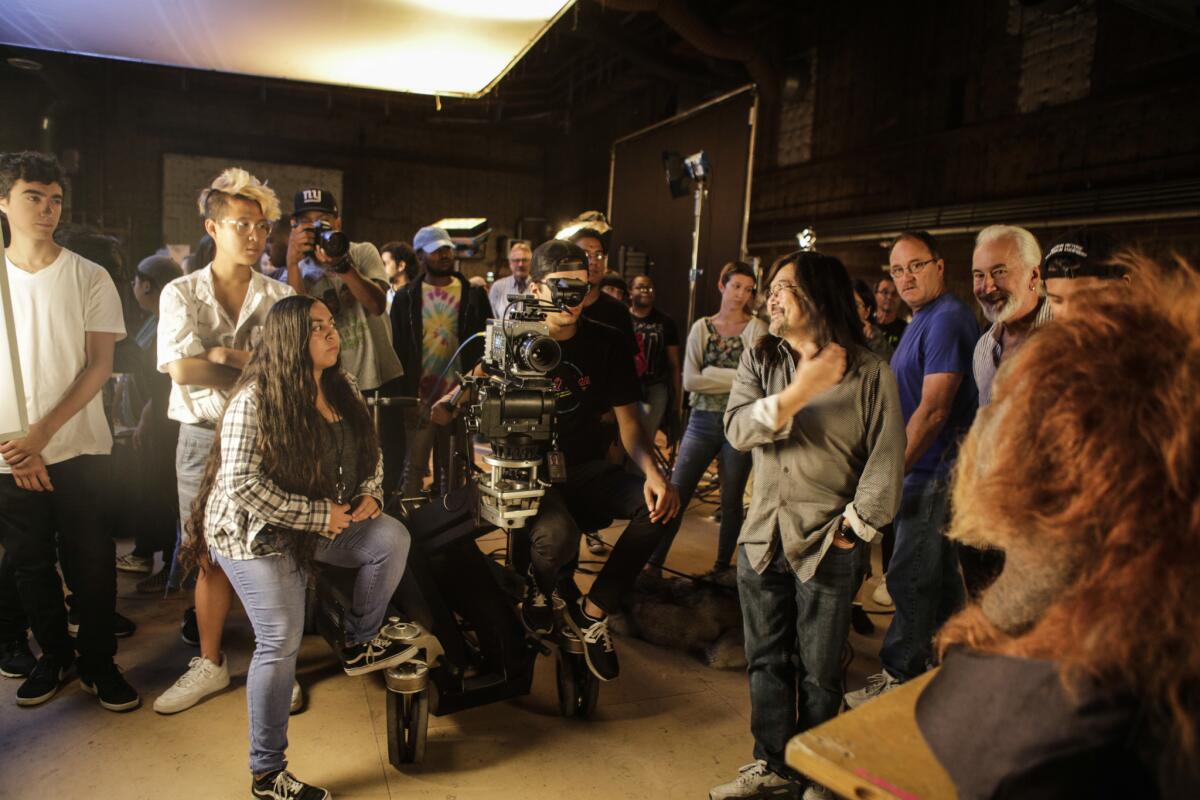
The Academy of Motion Picture Arts and Sciences has long been Hollywood’s version of Oz, an impossibly distant place somewhere over the rainbow for countless people dreaming of their big breaks. But in recent years, the organization has been taking new steps to help those just starting out on the yellow brick road, particularly women and people of color who have historically been underrepresented both in the academy and the industry as a whole.
In 2017, as part of its response to two consecutive years of the blistering #OscarsSoWhite controversy, the academy launched a new diversity internship program called Academy Gold. Open to roughly 100 people every summer, the eight-week program is designed to help boost inclusion across Hollywood by exposing young people from underrepresented communities to different aspects of the business through workshops, panels and screenings and connecting them with established figures in the industry.
Given the deep and intractable inequities in hiring that have long plagued the industry — inequities that have come into even starker relief in the wake of recent nationwide protests over systemic racism — the academy says the Gold program is not about simply nibbling at the edges of the problem or feel-good window dressing.
“It’s one thing to inspire and inform, but at the end of the day we really want to change career trajectories and create opportunities,” says Christine Simmons, the academy’s chief operating officer. “Obviously there’s always much more to do. But if we can change the trajectories for those 100 interns, we know that each of them will effect change with at least five or 10 others themselves if we do it right.”
On that score, the academy — which partners on the Gold internship with all of the major studios and more than a dozen other entertainment companies — points to early signs of success. To date, according to the organization, out of 293 people who’ve completed the program (which has gone virtual this summer due to the pandemic), 87% are currently employed or in other internships, with 75% on the career path of their choice and 27% in jobs that are higher than entry level.
But of course, simple numbers never tell the whole story. To get a fuller picture of how the program is working — and the barriers to success that still remain for those who’ve long been on the outside of Hollywood looking in — The Times reached out to six former Gold interns whom we interviewed two years ago to see how they’re now faring.
Babatunde Akinloye, 33
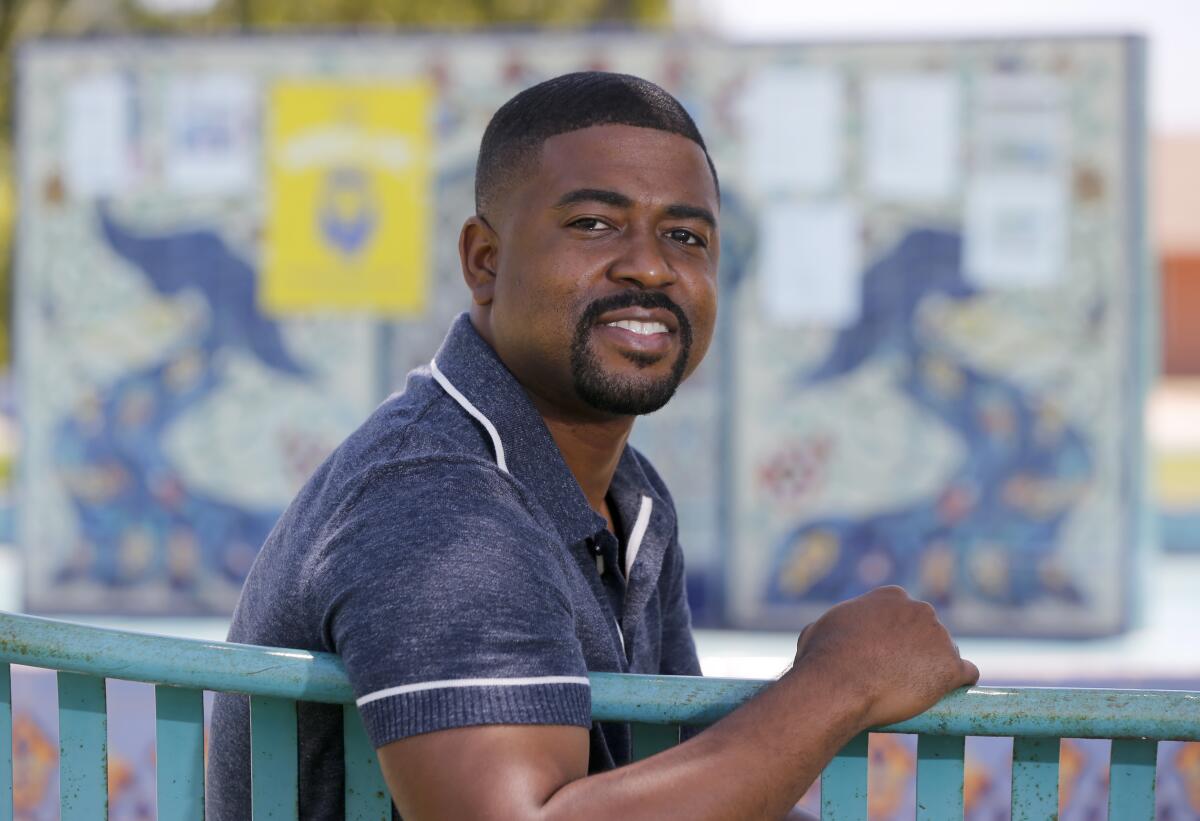
2018: “There still is some frustration there. But ... I’ve seen firsthand that things are trending in the right direction.”
Studying film as an undergraduate at UCLA, Babatunde Akinloye was the only African American in his class of 30 students, and he wondered if the industry would have a place for him. Twelve years after his graduation — and three years after completing his Academy Gold internship in 2017 — he now finds himself well on his way to reaching his dream of being a creative producer.
Following his Gold internship, Akinloye landed a job as an assistant at the production company Macro, whose mission is to bring stories of people of color to the screen.
“I had an amazing year working there,” says the Inglewood native. “I really got to be part of all the film and TV projects that were on the slate. I gained an incredible amount of experience in a short time.”
Last year, Akinloye — whose mentor as a Gold intern was former Disney production executive Tendo Nagenda — moved over to a position at Walt Disney Animation Studios, where he now is working as the production office manager on the studio’s as-yet-untitled 2021 feature film.
“I essentially assist the directors and producers on the film, making sure that the show is moving forward and helping the key creatives,” he says. “In a very real way, I’m here at Disney Animation as a direct result of Academy Gold. Animation is such a unique process, and I’m still wrapping my head around the pipeline. But the goal is definitely still to be a creative producer and I see a path here.”
Akinloye says he’s been heartened to see an increasing number of young Black professionals like himself working in the film industry. “It’s a very different landscape than what I came out into in 2008 as a fresh film school grad,” he says. “I think companies are aware of the need to have diverse talent bringing their experiences and cultural perspectives. It’s not just something that looks good on paper, it’s a smart business decision. But there’s always more work to be done.”
Saundarya Thapa, 34
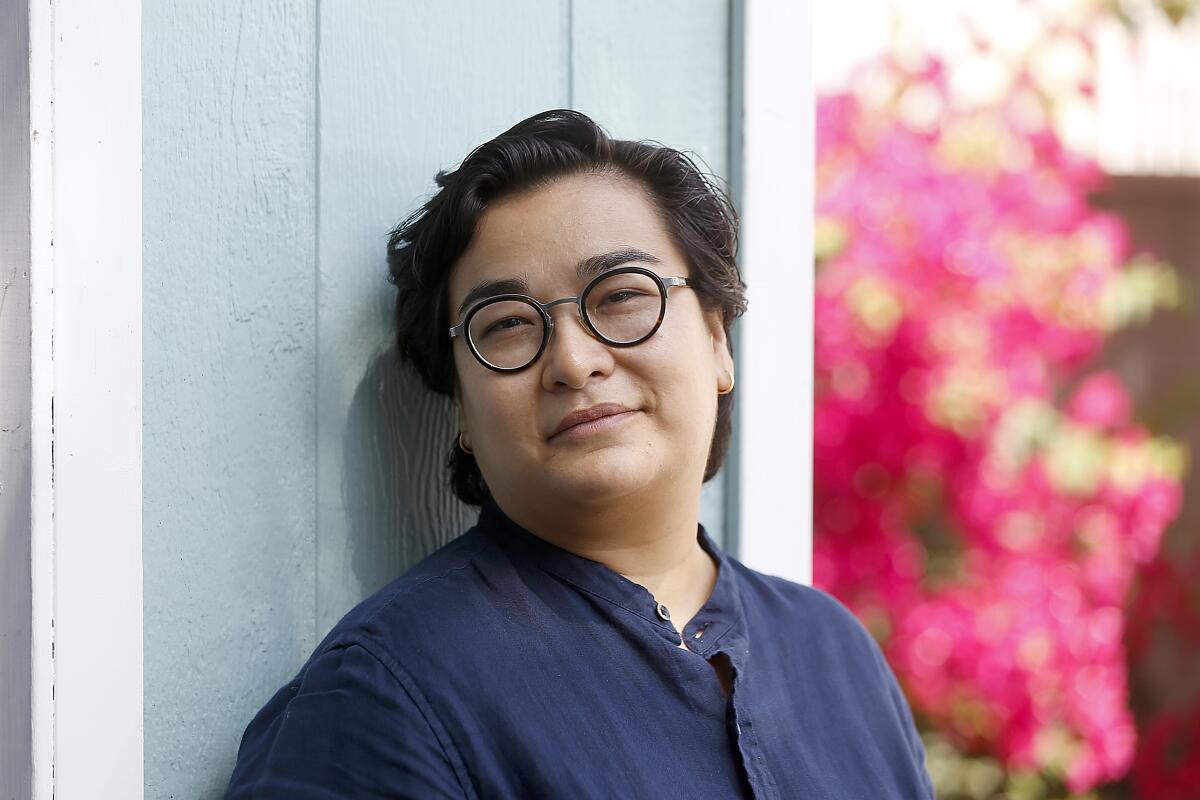
2018: “Not too long ago, I think the only thing I knew about the academy was hashtag #OscarsSoWhite.”
The mailrooms of Hollywood talent agencies have a storied history as incubators of future industry power players, from David Geffen to Barry Diller to Michael Ovitz, and are still considered a kind of grad school for aspiring agents and would-be moguls. But when she entered the Academy Gold internship program in 2018, Saundarya Thapa would never have imagined she’d end up working in one.
Interning in the academy’s oral history projects department, Thapa, who grew up in Nepal, initially planned on forging an academic career studying film. But after getting a tour of Creative Artists Agency as part of the Gold program, she began to consider an entirely different path working within the industry itself rather than analyzing it from the outside.
“That was the first time I set foot in an agency and it was very different from my limited understanding of that world, which was really based on TV shows,” Thapa says. “I was attracted to the energy of that world. By the end of Gold, I was like, ‘Wow, I think I’m going to try to change everything I wanted to do in my life.’”
After finishing her internship, Thapa, who studied film as a grad student at UCLA, hustled to find a job in the industry, eventually landing short-term gigs at Warner Music and the Sundance Institute. In February, she started work as a mailroom clerk at CAA, which is a partner with the Gold program.
“It’s been really a positive experience for me so far,” she says. “It’s been fascinating just seeing the diversity of people there. It’s not like all of these people look like me, but it’s also not like all of these people don’t look like me. It’s been really a positive experience so far. CAA has a very set type of path [for advancement] and I’m excited to go that route.”
Thapa credits the Gold program with opening her up to new career possibilities. “I think exposure and access are deeply linked,” she says. “When you see something, you realize that it’s possible. If you don’t even know about something, you don’t know to dream of it.”
Yousef Assabahi, 25
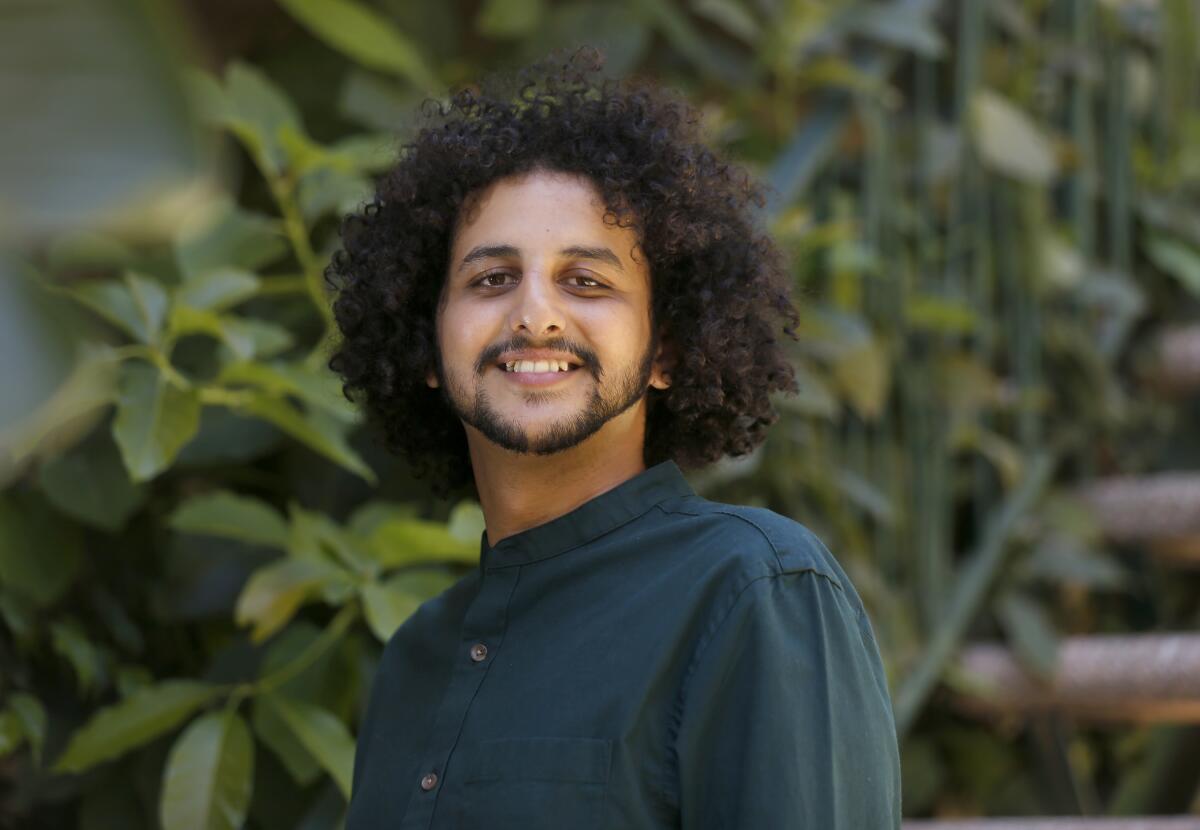
2018: The newly graduated UCLA film major from Yemen, then 23, said, “There is only one movie theater in the entire country. The only support I had was from my parents.”
Growing up in Yemen, Yousef Assabahi could hardly have felt further away from a career in Hollywood. When he told fellow Yemenis he wanted to be a filmmaker, he was generally met with bewilderment.
Undeterred, Assabahi studied film as an undergrad at UCLA and landed a spot as a Gold intern in 2018. After completing the program, he finished a short film called “Landmined” about two men hoping to escape from a war zone, which was screened at a few film festivals and in several embassies. Following a tip from a fellow Gold alum, Assabahi landed a job as a writer’s production assistant on the CW’s reboot of the 1980s prime-time soap opera “Dynasty.”
Since the pandemic shut down production, Assabahi has refocused his energies toward his dream of telling intimate, human stories like the late Iranian director Abbas Kiarostami, whose work he has lately come to love.
“Quarantine does a lot of things to you and you start having interesting ideas,” he says. “Right now I’m writing a feature and I’m working on an archival project that documents and preserves Yemeni folk tales and aims to transform them into an animated web series.”
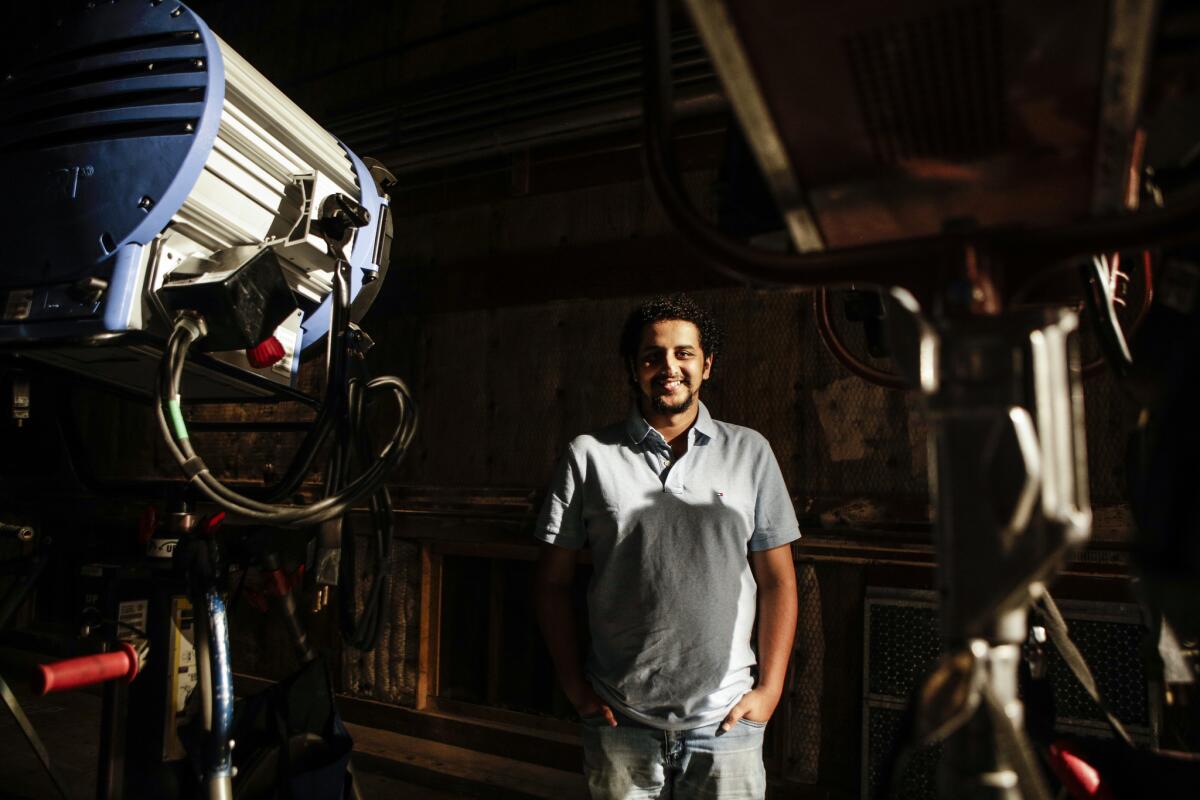
Though Assabahi has been inspired by seeing the success of the Hulu series “Ramy,” which is centered on a Muslim character, he believes the work of making the industry more inclusive at its highest levels is far from finished.
“When I was at ‘Dynasty,’ the diversity was in the support staff: the writers’ assistants, the PAs,” he says. “It’s not that there’s not progress. But I wouldn’t say that Hollywood has opened up. ... I think the Gold program is setting us up for the long run. It’s not the kind of thing where we’re going to see the results right away. It’s going to take years.”
Taty Garcia, 25
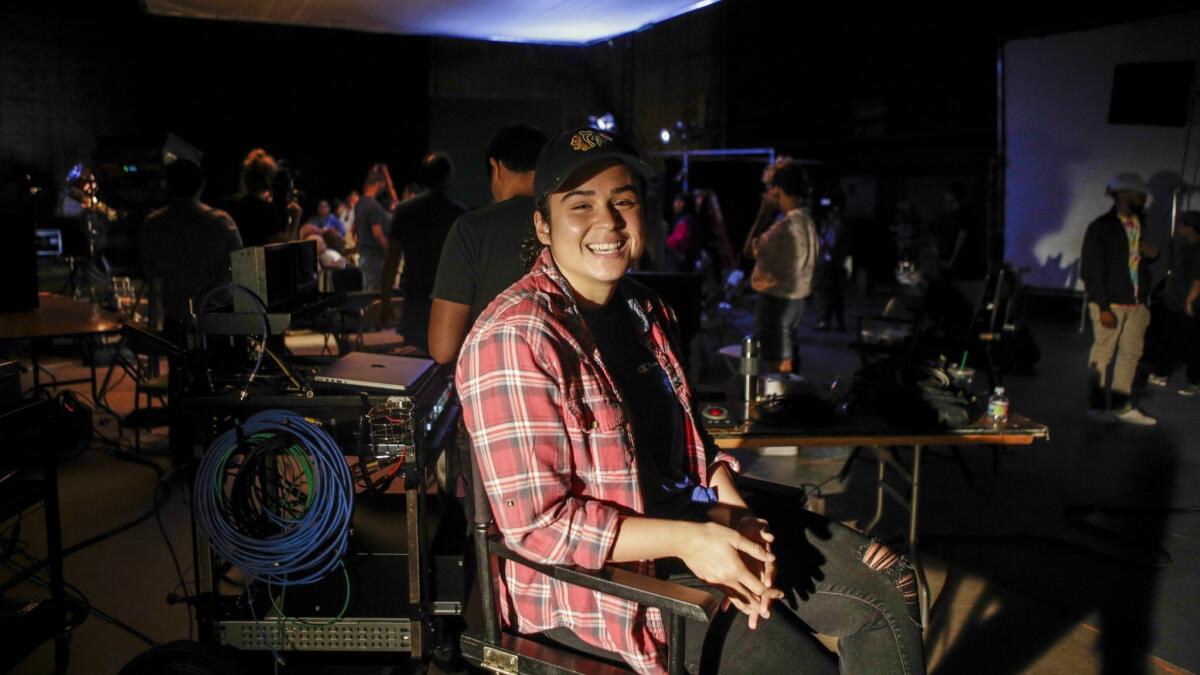
2018: The self-described “Disney nerd,” then 23, said, “It could be a little discouraging coming to L.A. and trying to get a break. ... I’m an inner-city Hispanic and a first-generation college grad. I felt like there was just a stigma on me, and there’s not a lot of female editors.”
Launching a career in Hollywood is difficult under any circumstances. If, like Taty Garcia, you don’t have the financial resources to stick it out indefinitely in high-priced L.A. while you look for your big break, it can sometimes seem all but impossible.
After finishing her Gold internship in August 2018, Garcia struggled to find a job in editing and post-production, which she had studied at Columbia College Chicago. Feeling the burden of her student loans, she ended up moving back to her native Chicago and took a job at an Apple Store. Still, she kept her dream alive, creating a short film with some Apple co-workers as part of a company-wide competition before eventually landing her current position as a production coordinator at a marketing agency.
Garcia, who had initially planned to become a nurse before discovering her passion for film, has continued looking for creative work in both Chicago and L.A.
“Film, TV, sports media — I’m open to all of it,” she says. “I love to create — it doesn’t matter what it is. If it’s a film, that’s amazing. But even if it’s a two-minute clip to show a highlight of something, that’s great. I’m not picky.”
In the meantime, she is trying to be patient. “I feel like the industry is starting to be more inclusive but I still think we’re lacking in terms of diversity for Hispanics,” says Garcia, who is of Puerto Rican descent. “But I know that things don’t happen overnight. Things take time. Those Hispanics who are breaking those barriers, they’re breaking them for the rest of us.”
Jordan Rogers, 24

2018: “With hard work and the right type of attitude and hunger, anything is possible.”
Before his Academy Gold internship, Jordan Rogers, like many outside Hollywood, would have been hard pressed to explain the difference between a network and a studio or what a production company is. Just a few years later, in his own version of a comic-book origin story, he has what he calls “the best job I could ask for,” working as a creative coordinator at Marvel Studios.
The Miami native, who studied economics at Morehouse College, credits the Gold program with setting him on the path toward his ultimate goal of becoming a creative producer. After his internship in 2018, he found himself unemployed for a few months until receiving a tip about a potential job at Marvel from a fellow Gold alum, who was working as an executive assistant there. With some interview-prep help from the academy, he landed the gig, which involves helping to produce promotional ads and other content related to Marvel movies like the upcoming “Black Widow” for Disney+, home entertainment and special events like Comic-Con and Disney’s D23 Expo.
“If it had not been for the Gold program, I don’t know if I would have had my horizons broadened enough to even know that the position that I have now exists,” Rogers says. “I wouldn’t have known where to begin.”
Rogers says he feels fortunate to be entering the industry at a moment when more opportunities are starting to open up for people from underrepresented communities.
“I definitely think things are changing. I think Disney and Marvel are leading with action. It’s not just talking about doing things — it’s actually doing them.”
Tracey Aivaz, 23
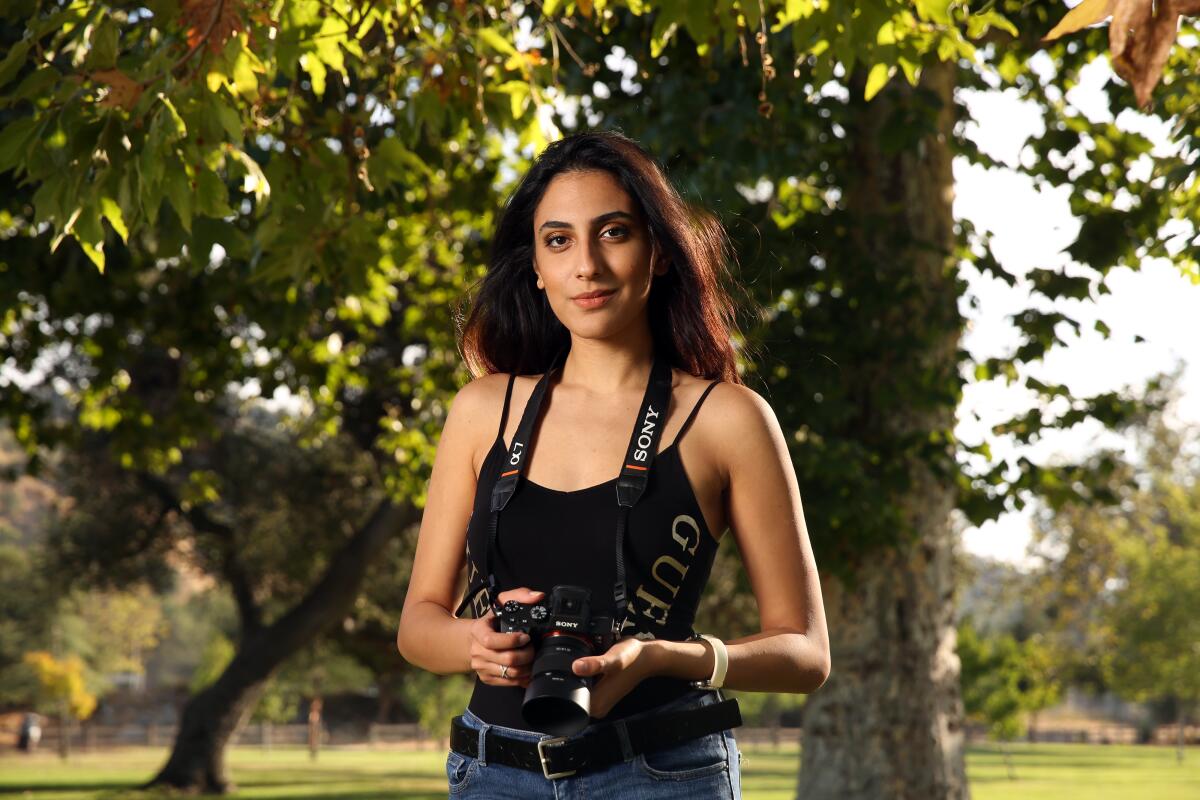
2018: “It’s very well known that women have not been given as many opportunities as men. ... so I feel very fortunate to be moving into this space.”
The coronavirus outbreak has put countless Hollywood careers on temporary hold, and though Tracey Aivaz is still at the beginning of hers, she is no exception.
Before the industry shut down, the Iranian-born Angeleno, who completed the Gold internship in 2017, was freelancing on a number of commercials, pitching in on friends’ projects and preparing to start shooting a short film toward her dream of becoming a feature director. Now she’s trying to make the most of the unexpected down time.
“I’ve been working on that short film script and another feature script,” says the USC film studies graduate, who after finishing the Gold program was picked to make a short film for Walmart and found herself being interviewed on the Oscars red carpet. “I’m trying to use this time in the best way that I can. But it’s really hard to have solid plans.”
According to a study by the USC Annenberg Inclusion Initiative, roughly 10% of the top 100-grossing films of 2019 were directed by women — a record-high number but one that still shows deep lingering inequities behind the camera. Still, Aivaz is optimistic about her prospects of following in the footsteps of personal inspirations such as Sofia Coppola and Kathryn Bigelow. “Obviously it’s still not fully there, but the numbers do keep on getting better and improving,” Aivaz says.
“Everyone has their own journey and if you try to compare your path to someone else’s, you might be disappointed. But in the long run, 10 or 20 years down the road, the goal is definitely me owning my own production company and having a good slate of high-quality, Oscar-qualifying feature films. That’s the dream.”
More to Read
Only good movies
Get the Indie Focus newsletter, Mark Olsen's weekly guide to the world of cinema.
You may occasionally receive promotional content from the Los Angeles Times.











